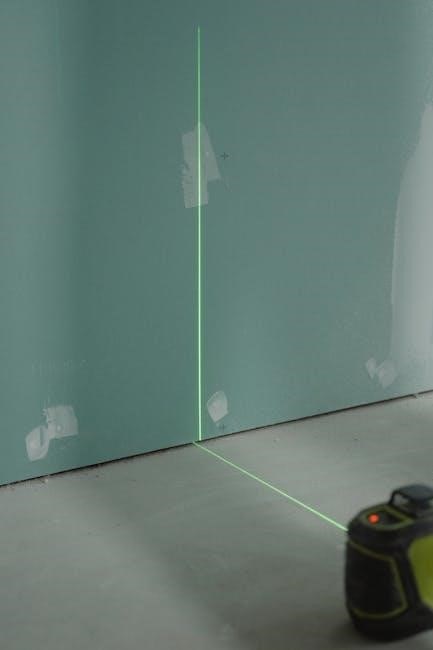The MUPC Procedural Guide is a comprehensive resource for navigating estate administration under the Massachusetts Uniform Probate Code․ It provides practical guidance and outlines legal procedures, ensuring efficient and accurate processing of probate matters․
1․1 Overview of the Massachusetts Uniform Probate Code (MUPC)
The Massachusetts Uniform Probate Code (MUPC) is a comprehensive legal framework governing estate administration, probate, and trust matters․ Enacted to modernize and streamline probate processes, the MUPC ensures uniformity, clarity, and efficiency in handling estates․ It addresses key aspects such as will probate, intestate succession, and fiduciary duties, providing clear guidelines for executors, administrators, and beneficiaries․ By establishing consistent procedures, the MUPC aims to reduce complexity and ensure fair outcomes, making it a cornerstone of estate law in Massachusetts․
1․2 Importance of the Procedural Guide in Estate Administration
The MUPC Procedural Guide is indispensable for court staff, practitioners, and fiduciaries, offering step-by-step instructions for estate administration․ It ensures compliance with legal requirements, simplifies complex processes, and reduces errors․ By providing standardized procedures, the guide enhances efficiency, consistency, and transparency in probate matters․ Its practical insights and updated information make it an essential tool for navigating the intricacies of estate administration under the MUPC, ensuring that all parties adhere to established protocols and best practices․

Key Components of the MUPC Procedural Guide
The MUPC Procedural Guide outlines essential components for estate administration, including definitions, forms, and legal frameworks․ These elements ensure clarity and compliance in probate processes․
2․1 Definitions and Legal Framework
The MUPC Procedural Guide defines key terms and establishes a clear legal framework for estate administration․ It clarifies roles like Personal Representative and outlines probate procedures, ensuring consistency and compliance with Massachusetts law․ This section provides foundational knowledge essential for understanding the entire guide, making it a crucial starting point for practitioners and court staff alike․
2․2 Forms and Documentation Requirements
The MUPC Procedural Guide details essential forms and documentation necessary for estate administration․ It specifies required documents like petitions, inventories, and accountings, ensuring compliance with legal standards․ Proper submission of these forms expedites probate processes, reducing delays․ The guide emphasizes accuracy and completeness in documentation to facilitate smooth estate management under Massachusetts probate laws․

Probate Process Under the MUPC
The probate process under the MUPC is a structured framework for estate administration, ensuring legal compliance and efficient resolution of decedent’s affairs through court oversight․
3․1 Filing a Petition to Open the Estate
Filing a petition to open the estate is the initial step in the probate process under the MUPC․ This involves submitting the required legal documents, fees, and forms to the Probate and Family Court․ The petition must include the will, if applicable, and other necessary information․ The court reviews the submission to determine the estate’s validity and appoint a personal representative․ This step ensures the estate administration process begins formally and in compliance with legal standards, as outlined in the MUPC Procedural Guide․
3․2 Procedures for Probating a Will
Probating a will under the MUPC involves submitting the will to the Probate and Family Court for validation․ The process requires filing the will, along with a petition, and notifying all interested parties․ The court verifies the will’s authenticity, ensuring it meets legal standards for execution․ Once validated, the will guides estate distribution․ Proper documentation and adherence to procedural steps are crucial for a seamless process, as detailed in the MUPC Procedural Guide․

Estate Administration Practices
Estate administration involves managing and distributing assets according to legal guidelines, ensuring proper inventory, appraisal, and distribution while adhering to the decedent’s wishes and legal standards․
4․1 Inventory and Appraisal of Assets
The inventory and appraisal of assets are critical steps in estate administration under the MUPC Procedural Guide․ This process involves identifying, cataloging, and valuing all estate assets, ensuring accuracy and compliance with legal standards․ The personal representative must compile a detailed inventory, often with the assistance of appraisers for specialized assets․ Proper documentation is essential to avoid disputes and ensure fair distribution․ Timely submission of the inventory to the court is required, adhering to established deadlines and procedures outlined in the guide․
4․2 Managing and Distributing the Estate
Managing and distributing the estate involves fulfilling the decedent’s wishes as outlined in their will or under intestacy laws․ The personal representative must pay debts, taxes, and expenses before distributing remaining assets to beneficiaries․ The MUPC Procedural Guide emphasizes the importance of maintaining detailed records and ensuring transparency throughout the process․ Distribution must follow legal procedures, and beneficiaries may require acknowledgment of receipt․ Proper documentation and court approval are often necessary to finalize the estate distribution process effectively․

Fiduciary Responsibilities and Duties
Fiduciary responsibilities under the MUPC require acting in the estate’s best interest, managing assets diligently, and ensuring compliance with all legal and procedural requirements․
5․1 Role of the Personal Representative
The Personal Representative (PR) plays a pivotal role in estate administration, tasked with managing the estate’s assets, paying debts, and distributing remaining assets according to the will or state law․ They must act impartially, maintaining detailed records and ensuring transparency throughout the process․ Their duties include inventorying assets, filing necessary documentation, and representing the estate in legal matters․ Compliance with the MUPC ensures the PR fulfills their fiduciary responsibilities effectively․
5․2 Accounting and Reporting Requirements
The Personal Representative must adhere to strict accounting and reporting obligations, ensuring transparency in estate administration․ This includes preparing detailed financial records, submitting inventories, and providing annual accountings to beneficiaries․ Reports must outline income, expenses, and asset distributions, with documentation filed as required by the Probate and Family Court․ Compliance with these requirements is essential to maintain accountability and fulfill the PR’s fiduciary duties under the MUPC, preventing potential legal disputes․

Legal and Procedural Updates
The MUPC Procedural Guide is regularly updated to reflect changes in probate law and court procedures․ Recent revisions aim to clarify estate administration processes and ensure compliance with current legal standards, providing practitioners and court staff with accurate and up-to-date guidance․
6․1 Recent Revisions to the MUPC Procedural Guide
Recent revisions to the MUPC Procedural Guide focus on updating estate administration processes to align with changes in Massachusetts probate law․ These revisions include clarifications on voluntary administration, updated forms, and streamlined procedures for probating wills․ The guide now reflects modern legal standards, ensuring that practitioners and court staff have access to accurate and current information․ These updates aim to enhance efficiency and compliance in estate administration, addressing evolving legal requirements and practical challenges faced by professionals in the field․
6․2 Changes in Probate and Family Court Procedures
Recent changes in Probate and Family Court procedures aim to streamline estate administration processes․ Updates include new filing requirements, revised forms, and expanded electronic submission options․ These modifications align with the MUPC Procedural Guide to ensure consistency and efficiency․ Additionally, the court has implemented measures to improve transparency and reduce delays, benefiting both practitioners and families involved in probate matters․ These changes reflect ongoing efforts to modernize and enhance the administration of estates within the Massachusetts legal system․
Practical Guidance for Court Staff and Practitioners
The MUPC Procedural Guide offers essential tools and resources for court staff and practitioners, ensuring compliance with updated laws and streamlined estate administration processes․
7․1 Best Practices for Efficient Estate Administration
Efficient estate administration under the MUPC Procedural Guide involves thorough preparation, timely filings, and clear communication․ Utilizing updated forms and adhering to court procedures ensures compliance and reduces delays․ Practitioners should leverage the guide’s resources for navigating complex cases, staying informed on legal updates, and implementing streamlined processes․ Regular reviews of documentation and proactive management of estate assets are key to achieving efficient and effective administration․
7․2 Resources for Navigating Complex Cases
The MUPC Procedural Guide offers extensive resources to navigate complex estate administration cases․ The second edition provides updated chapters, forms, and practical guidance for court staff and practitioners․ Online materials, including PDF guides and legal updates, are readily accessible․ These resources ensure compliance with evolving laws and streamline processes for handling disputes and voluntary administrations․ By leveraging these tools, professionals can efficiently manage intricate cases and adhere to Probate and Family Court requirements․

Case Studies and Examples
This section provides real-life case studies and examples, such as voluntary administration and dispute resolution, to illustrate estate administration processes under the MUPC Procedural Guide․ The second edition offers updated practical applications․
8․1 Voluntary Administration Examples
The MUPC Procedural Guide includes examples of voluntary administration, such as simplified processes for small estates or uncontested cases․ These examples highlight efficient methods for inventorying assets, paying debts, and distributing property without formal court intervention․ Practical scenarios demonstrate how voluntary administration can streamline estate settlement, reducing costs and time․ The guide also provides templates and checklists to facilitate these processes, ensuring compliance with legal requirements․ These examples are invaluable for practitioners seeking to navigate complex cases effectively․
8․2 Resolving Disputes in Estate Administration
The MUPC Procedural Guide offers strategies for resolving disputes in estate administration, such as contested wills or beneficiary conflicts․ It outlines mediation options and court procedures to address disagreements fairly․ The guide emphasizes the importance of clear communication and legal adherence to minimize delays․ Practical examples and case studies illustrate effective dispute resolution techniques, ensuring that estates are administered smoothly and in accordance with the law․ These resources are essential for maintaining harmony among all parties involved․
The MUPC Procedural Guide is an indispensable tool for modern estate administration, providing clarity and efficiency․ Its ongoing updates ensure relevance, making it a cornerstone for future practices․
9․1 Significance of the MUPC Procedural Guide in Modern Estate Administration
The MUPC Procedural Guide plays a pivotal role in modern estate administration by streamlining processes and ensuring compliance with legal standards․ It offers clear instructions, reducing complexities for practitioners and court staff․ Regular updates reflect evolving laws, making it a reliable resource for handling probate cases efficiently․ This guide is essential for maintaining consistency and fairness in estate management, fostering trust among all parties involved․
9․2 Future Directions for the MUPC Procedural Guide
The MUPC Procedural Guide is expected to evolve with advancements in probate law and digital technologies․ Future editions may incorporate more interactive tools and real-time updates to enhance accessibility․ Expanding training programs for practitioners and court staff will ensure widespread adoption of best practices․ Additionally, integrating feedback from users will help refine the guide, making it even more effective in addressing the complexities of modern estate administration․




About the author